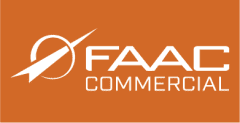Using Simulation Training to Prepare Transit Operators for New Technology and Customer Interactions
Published

Driving a busload of passengers to work or school is not the same experience it was ten years ago. Changes in ridership, vehicle technology, and the increasing challenge of maintaining a safe environment have taken a toll on Transit Operators. As the Federal Transit Administration noted in a 2021 report: “Operations and maintenance workers must understand how to manage new transit vehicles and other physical assets. All employees, particularly frontline employees, need to know how to identify and respond to emergencies…However, applicants possessing these new areas of expertise do not necessarily exist in sufficient numbers in the existing workforce or much of its applicant pool.”
Transit Operator training must grow and evolve alongside the changes and challenges in mass transit. Many agencies are already adopting simulation training to help address the shift to new technologies. For example, FAAC offers new Zero Emission Bus (ZEB) training simulators to help drivers assimilate to the differences in handling in battery-electric buses and learn to operate these vehicles efficiently to maximize battery range. Also, these simulators can be equipped with digital mirrors, which are now used in some areas to help reduce pedestrian accidents. Besides adjusting to operational changes, vehicles equipped with new technologies also require a different kind of situational awareness.
Using Transit Response to Train Operators in Passenger Interactions and Handling Emergencies
Simulation isn’t just for vehicle operations. The latest generation of simulators and training scenarios can also help drivers identify and respond to emergencies, develop culturally sensitive practices, and adhere to ADA procedures for assisting passengers.
FAAC’s Transit Response helps Transit Operators develop tools to interact and communicate effectively and respectfully with passengers. Transit Response is a scenario-based interaction simulator that prepares workers with the knowledge and skills to address the full range of possible passenger interactions and on-bus emergencies. Each scenario is purpose-built for any given training objective and will allow students to experience the consequences of their actions in real-time.
https://www.youtube.com/watch?v=jhPafjWXa4Uandt=84s
Transit Response helps frontline workers hone outward-facing skills (e.g., active listening and communication) and inward-facing skills (e.g., stress management, stress inoculation, and situational awareness). Transit Response can be added to any MB 2000 or Paratransit Simulator. This tool has a library of scenarios allowing drivers to rehearse a wide range of passenger interactions—from simple fare-related issues to de-escalating arguments, addressing medical emergencies, and more. Both veteran drivers and trainees can safely practice managing competing demands on their attention while applying communication and passenger interaction skills, operating a large vehicle, and adhering to your agency’s established policies and procedures.
FAAC Transit Business Manager Jason Francisco describes the system’s benefits: “In Transit Response, you are addressing whatever it is—a medical emergency, a fight, an agitated passenger, an accident—right from the Operator’s seat: assessing the situation, getting information from passengers or over the radio, relaying information, giving instructions, while safely controlling the vehicle. All from that seat, with eyes on the road, keeping a clear mind and making sure you cover every step—Did I call control? Am I missing something?—while in the fray.”
The current library of scenarios included with Transit Response covers assisting customers, de-escalating situations, effective communication, managing emergencies, and many other everyday situations that Operators face. FAAC is eager to partner with transit agencies to create additional custom scenarios covering an even wider range of incidents and situations.

